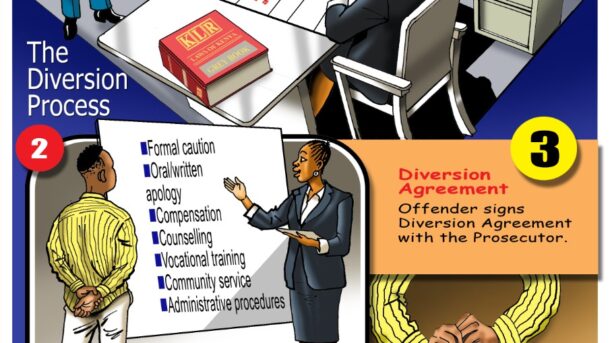As Kenya strives to implement a more rehabilitative and inclusive justice system, the process of requesting diversion becomes a critical aspect of the legal landscape.
This article provides a comprehensive guide on how requests for diversion are made, the eligibility criteria considered by Public Prosecutors, and the specific stages at which diversion can be contemplated within the criminal justice process.
Making a Request for Diversion
Automatic Consideration by Public Prosecutor
Public Prosecutors automatically evaluate whether the eligibility criteria for diversion are met in appropriate cases. This proactive approach ensures that potential diversion opportunities are identified early in the legal process.
Oral or Written Requests:
Requests for diversion can be made either orally or in writing to the prosecutor. This flexibility allows for accessibility and ensures that the process accommodates the diverse needs and preferences of those involved.
Timing of Diversion Consideration
Early Decision Making
The Prosecutor is encouraged to make a decision on diversion as early as possible after the offender has been arrested. This timely approach aligns with the overarching goal of addressing cases promptly and effectively.
Flexibility in Timing
Diversion can be considered at any time from arrest to the close of the prosecution case. This flexibility allows for a dynamic and responsive approach, considering the evolving circumstances of each case.
Before or After Charge Laid
Diversion can be considered both before and after a charge is laid. If a Public Prosecutor decides not to divert a case before a charge is laid, they have the discretion to reconsider that decision when, or after, the charge is laid, taking into account any additional information that may become available.
Limitation on Diversion Timing
Importantly, diversion is not available after the close of the prosecution case. This clear limitation ensures that diversion is contemplated within a timeframe that allows for effective implementation and assessment of its impact.
Exclusion at Sentencing Stage
Diversion at the sentencing stage is explicitly excluded from this policy. Recognizing a separate statutory mechanism available under sections 4(1) and 9 of the Probation of Offenders Act, diversion at sentencing follows a distinct process.
Conclusion
The process of requesting diversion in Kenya is designed to be flexible, inclusive, and responsive to the unique dynamics of each case. By allowing requests to be made orally or in writing, considering diversion at various stages of the legal process, and establishing clear limitations on the timing of diversion, Kenya’s justice system aims to strike a balance between efficiency and fairness.
As the country continues to navigate the implementation of diversion policies, the flexibility and clarity in the request process contribute to building a justice system that is accessible, transparent, and focused on rehabilitation.




